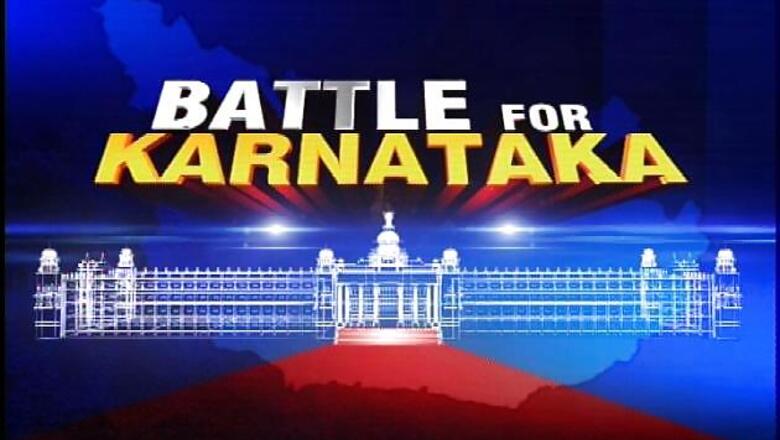
views
Bangalore: The results for the Karnataka Assembly elections, which recorded the second highest voter turnout in 35 years with a polling percentage of 71.29 in the May 5 voting, will be known on Wednesday. The results will decide the fate of 2,940 candidates in 223 Assembly segments. Although Karnataka Assembly has 224 seats, election in Periyapatna in Mysore district had been put off to May 28 following the death of the BJP candidate.
Authorities had made elaborate security arrangements with some 1.35 lakh police personnel on duty in some 52,000 polling booths where about 65,000 electronic voting machines had been installed. Barring sporadic incidents, including one at Bellary, the voting was largely peaceful.
A recharged Congress, which is challenging the corruption-tainted BJP, sees the highly impressive polling percentage as clear sign of winds of change that would bring the party back to power after an eight-year long hiatus. However, the ruling BJP has a different take. It feels the increase in turnout was because more BJP supporters came out to vote.
While the finals results will be known only a few hours after the counting begins, trends indicate that the Congress is likely to make a comeback even though its victory march has hit a few roadblocks.
A pre-poll survey conducted in April by Centre for the Study of Developing Societies (CSDS) for CNN-IBN and The Week in 294 locations of 75 constituencies spread across Karnataka interviewed a total of 4,198 people. The results revealed that Congress is all set to decimate the Bharatiya Janata Party (BJP) and storm the Vidhana Soudha with a clear majority. The pre-poll findings were aired on April 25, 10 days before the state voted.
In those 10 days there have been some changes on the ground which now reveal that even though the Congress is still way ahead of its rivals, according to the revised estimates the party's seat tally is likely to come down to 100-116 even as the BJP and former prime minister HD Devegowda's Janata Dal Secular are in a neck and neck battle for the second spot with both likely to get 43-53 seats. The revised estimates show that others will bag 16-24 seats.
The five reasons why CNN-IBN believes that the projection done then, would alter now, are:
1. Faulty choice of candidates by Congress leading to unhappiness within the party and open and subtle opposition to the official nominee.
2. Infighting between prominent leaders of the Congress and absence of a well orchestrated and coordinated campaign.
3. Consolidation of Vokkaliga vote behind the JDS in Southern Karnataka and Bangalore rural.
4. Split in Lingayat vote between BJP and KJP in Northern Karnataka, resulting jn a advantage for the Congress.
5. Strong impact of double anti-incumbency against the BJP (against government and against individual MLA's many of whom have completed two or three terms) in coastal Karnataka that has worked to the advantage of Congress.
The pre-poll survey aired on April 25 gave the Congress an overwhelming lead of almost 14 percentage points in vote share over the BJP. According to the pre-poll survey the Congress (37 per cent vote share) was likely to secure 117-129 seats in the 224-member Assembly. According to the CSDS pre-poll survey the BJP then would have secured just 23 per cent of votes and won 39-49 seats, a huge fall from its heyday of 2008 when Karnataka become India's first southern state to have a BJP government.
Former Karnataka chief minister BS Yeddyurappa, who quit the BJP and formed Karnataka Janata Paksha (KJP), was expected to hit his former party hard, looking set to secure seven per cent of the votes, while the Janata Dal Secular (JDS), with 20 per cent votes, would have bagged 34-44 seats, according to the survey. The other smaller parties and independents were likely to secure 13 per cent of the votes and get 14-22 seats.
While the Congress was the biggest party in terms of vote share in 2008 with 35 per cent, and the BJP came second with 34 per cent, the latter won more seats than the former to form the government.
A look at the different regions showed that the Congress was comfortably ahead in most of them, whereas the BJP and the JDS were involved in a close race to determine who would take the second spot. Five years ago, most people liked both the BJP and Yedyurappa, but in 2013 most people dislike them.
In Hyderabad Karnataka with 31 seats, the Congress had consolidated its lead over the BJP while the JDS had been on a downslide. The Congress looked set to recover and lead the BJP in Mumbai Karnataka which accounts for 50 seats whereas in Coastal Karntaka (21 seats) it was a close race between the two principal rivals with the JDS also improving its prospects.
Central Karnataka (35 seats) was also likely to see a Congress triumph as the BJP's base in the region has been dented by the KJP. In Southern Karnataka (51 seats) it was close race between the JDS and Congress while Bangalore (36 seats) was backing the Congress as the BJP's fortunes took a dip while the JDS was also making some gains.
Hyderabad Karnataka includes Gulbarga, Yadgir, Bidar, Raichur and Koppal districts; Mumbai Karnataka includes Belgaum, Bagalkot, Bijapur, Gadag, Dharwad and Haveri districts; Central Karnataka includes Bellary, Chitradurga, Davangere, Shimoga and Chikmagalur districts; Coastal Karnataka includes Uttar Kannada, Udupi, Dakshin Kannada and Kodagu.
In fact the BJP is down across all key socio-economic categories compared to 2008 with the Congress reaping the benefits. There is a strong anti-incumbency against the present government with 57 per cent of the respondents are against the BJP getting another chance to rule the state.
The BJP government has been assessed to be worse than the Congress-led Central government. But there is some hope for the BJP as its MLAs have been assessed better than the state government.
In another major revelation, Yeddyurappa's government has been rated slightly better than Sadananda Gowda and Jagadish Shettar's governments. Ironically Yeddyurappa was forced to quit following allegations of massive corruption.
Even though the Congress was way ahead of its rivals, its leaders were trailing in the chief ministership race which was led by HD Kumaraswamy of the JDS. Kumaraswamy was backed by 18 per cent of the respondents while KJP chief Yeddyurappa was second with 10 per cent of the votes and Siddaramaiah was the most popular of all Congress leaders with nine per cent.
Caste is set to play a major role with Vokkaligas overwhelmingly rooting for Kumaraswamy and Lingayats backing Yeddyurappa. Kumaraswamy is also viewed as the best chief minister ever across all age groups while SM Krishna is a close second and Yeddyurappa third. In case of a hung Assembly most prefered a Congress-JDS alliance with JDS voters being overwhelmingly in favour of doing so.
Most of the respondents then said that the Congress provided the best governance out of all governments in last 15 years and satisfaction with the UPA government and Manmohan Singh was also fairly high.










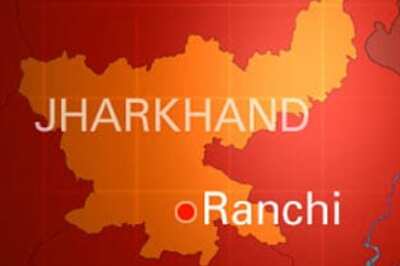

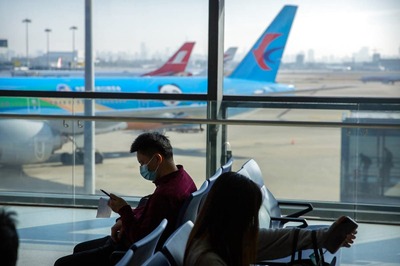

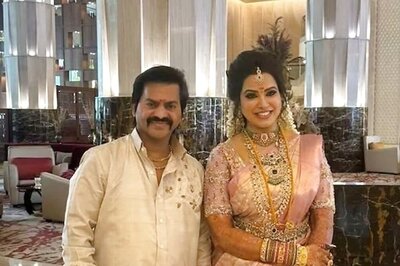


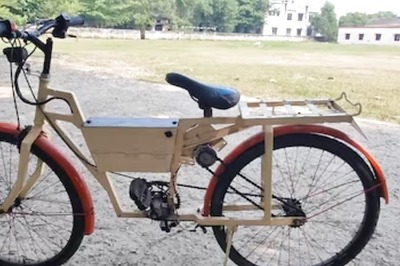
Comments
0 comment